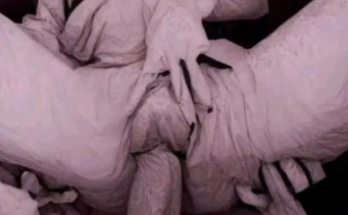Stephen King Delivers Sharp Critique of Trump and His Erratic Social Media Posts
Stephen King has always been a writer unafraid of confronting darkness. For decades, his novels have forced readers to look directly at the monsters that lurk in shadows, both supernatural and human. Yet in recent years, King has argued that one of the most frightening figures of all isn’t fictional at all. It’s Donald Trump. Through interviews, essays, and especially his constant stream of commentary on social media, King has delivered one of the sharpest cultural critiques of Trump, framing his political rise and online behavior as nothing short of a real-life horror story.
Trump as a Horror Character
In a 2025 interview, King was asked what kind of ending he would write for Trump’s America if it were one of his novels. His answer was both cutting and revealing: impeachment would be the good ending, and the bad ending would be Trump gaining even more power. He added bluntly, “Trump is a horror story, isn’t he?” This was more than just a political jab. It was King identifying Trump as the embodiment of what he has always written about—corrupt power, fear weaponized for control, and ordinary citizens caught in the grip of something larger and darker than themselves.
King’s fiction often features demagogues and manipulators—characters like Greg Stillson in The Dead Zone, a violent populist whose rise to power threatens democracy. For years readers have pointed out the eerie similarities between Stillson and Trump. King himself admitted that Trump’s presidency was scarier than anything he had written, because unlike his novels, there was no guarantee that the story would end with justice.
The Twitter Wars
King’s critiques were not confined to interviews. For much of Trump’s presidency and beyond, King used Twitter (now X) as a platform to voice his frustration and alarm. His feed read like a running commentary on the unraveling of American political life. Unlike some public figures who tried to remain neutral or polite, King wielded satire, sarcasm, and blunt honesty.
He mocked Trump’s economic policies, especially the use of tariffs, calling them self-destructive. In one memorable remark, he likened Trump’s decisions to a soccer player scoring against his own team. On another occasion, he declared flatly, “Trump is ruining the economy with his stupid tariffs.” These weren’t casual comments; they were sharp, accessible critiques designed to cut through political spin and highlight consequences that affected ordinary people.
King also mocked Trump’s bravado and evasiveness. He coined the acronym “TACO: Trump Always Chickens Out,” and when addressing Trump voters, he didn’t hold back. “Enjoying the ruin of your 401Ks?” he asked sarcastically, before comparing Trump to the viral “honeybadger” meme—indifferent to the suffering he caused. He even shared protest art that described Trump with a biting parody of “Supercalifragilisticexpialidocious,” rephrased as “Super callous fascist racist sexist Nazi POTUS.”
Through these tweets, King wasn’t simply venting. He was using the tools of satire and ridicule—longstanding traditions in American political discourse—to strip away the aura of power that Trump cultivated online.
A Window into a Disordered Mind
While many politicians use social media strategically, King often argued that Trump’s posts revealed something deeper and more troubling. In 2019, he described Trump’s Twitter use as a “window into an increasingly disordered mind.” Coming from a man whose career has been spent examining psychology under stress and the fragility of sanity, this was not a casual observation. King saw the erratic late-night rants, the baseless accusations, and the attacks on perceived enemies not as strategy but as signs of instability.
King knew the importance of tone and perception. In his novels, the unraveling of a character’s mind is often marked by small, erratic behaviors before full collapse. To him, Trump’s Twitter presence was not just annoying—it was alarming.
Humor as Resistance
Not all of King’s commentary was grave. At times, he used humor as a way of coping with absurdity. When Trump accused former President Obama of wiretapping him, King responded with a satirical tweet that read, “Not only did Obama tap Trump’s phones, he stole the strawberry ice cream out of the mess locker.” The humor undercut the paranoia of the claim and reminded readers how surreal the political climate had become.
This type of satire—pointing out the ridiculous by making it more ridiculous—has always been one of King’s weapons as a storyteller. By mocking Trump’s unfounded claims, King invited people not just to disagree but to laugh at the absurdity of giving them credence.
Trump as a Living Dead Zone
For many of King’s readers, the parallels between Trump and his fictional creations were unavoidable. The Dead Zone in particular became a cultural touchstone during Trump’s presidency, with fans noting that King had almost predicted his rise decades earlier. The character of Greg Stillson, a salesman turned political candidate who manipulates crowds with fear and spectacle, felt eerily familiar. King himself acknowledged the comparison, saying he had already “written about Trump” through Stillson.
Yet King emphasized that the difference between fiction and reality is critical. In his novels, readers can turn the final page and find resolution. In politics, people must live with the consequences.
The Trump–Musk Feud
By 2025, Trump was no longer the only figure to draw King’s ire. When Trump and Elon Musk engaged in a public feud, King dismissed it as “a hissy little catfight.” His point was clear: while billionaires traded insults and dominated headlines, the world faced far more pressing issues. This statement captured King’s ongoing frustration with spectacle-driven politics and media, where personality clashes overshadow real problems.
Why Stephen King’s Critique Resonates
King’s words cut through because they come from someone who has spent a lifetime crafting stories about fear, corruption, and survival. His critiques of Trump were not detached political analyses but moral judgments rooted in a storyteller’s sense of justice. Readers who grew up with his novels recognized in his commentary the same themes he had always explored: how ordinary people endure when confronted by forces of chaos and cruelty.
Moreover, King’s refusal to stay silent reflected a belief that writers have a responsibility not only to entertain but to bear witness. His social media presence became an extension of his storytelling—a way to point out the monsters that existed not in haunted hotels or fog-shrouded towns but in the corridors of real power.
Conclusion: A Real-Life Horror Story
For Stephen King, Trump’s social media behavior and presidency were not merely politics as usual. They were horror made real: the breakdown of truth, the rise of fear, the spectacle of cruelty packaged as entertainment. His tweets, interviews, and public statements combined satire, sarcasm, and genuine alarm to expose Trump’s flaws and to warn others not to dismiss them.
King once said that kindness and courage are the antidotes to fear. By speaking out, even when his words were controversial or mocking, he modeled the same resistance he wrote about in his novels. For him, silence in the face of a living horror story was not an option. And for millions who follow his work, his critique of Trump was both a mirror and a call to action.


